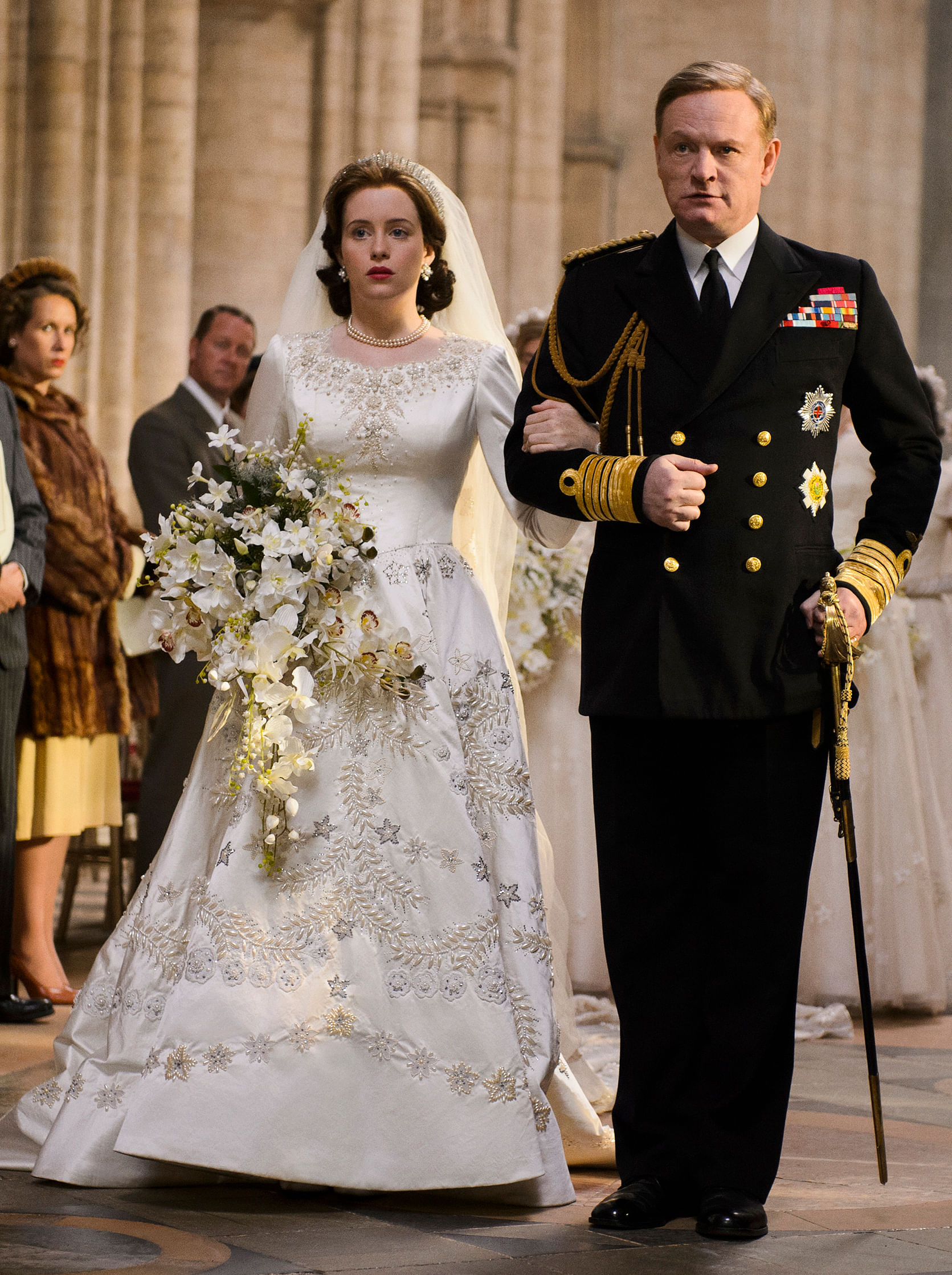The US$130-million (S$183- million) Netflix series, The Crown, is among the most expensive television shows made - and you can see where the money went.
A lavish look at the early reign of Queen Elizabeth II, the sweeping 10-part period drama is impeccably staged and fastidiously researched, boasting impressive recreations of everything from her dazzling 1953 coronation to her first Commonwealth tour.
Creator Peter Morgan, who wrote the award-winning movie, The Queen (2006), once again shows a talent for humanising the famously remote royals, aided by sumptuous cinematography and a superb cast, who ably convey the loneliness of individuals stifled by centuries of tradition and the need to keep up appearances.
As Elizabeth, Claire Foy (Wolf Hall, 2015) is a young woman who has the crown unexpectedly thrust on her after the death of her father, King George VI, movingly portrayed by Mad Men's Jared Harris.

Matt Smith (TV's Dr Who, 2010- 2014) is her husband, Prince Philip, for whom her position inevitably proves emasculating. Vanessa Kirby plays sister Princess Margaret, whose illicit romance with a married aide breeds scandal. John Lithgow is Winston Churchill, who guides and manipulates the monarch as he games his own political fate.
But despite the veneer of historicity, this is essentially a classy soap opera a la Downton Abbey, albeit one based loosely on biographies and other accounts of public figures who have given away little.
It is put together so deftly that viewers can come away thinking it is an accurate reflection of the Windsors; in that sense, the show is pretty effective royalist propaganda.
The family is thoroughly romanticised by this mostly flattering portrait, which takes only a cursory critical stance on the archaic institution of the British monarchy (the writers really sharpen their knives for the Duke of Windsor, who abdicated the throne to marry Wallis Simpson).
Capitalising on the public's fascination with the royals and a more general craving for "celebrities, they're just like us" narratives, the grand plan is for The Crown to go on for six seasons, each examining a decade of the queen's life.
But that much airtime hardly seems justified for a biopic of a still-living figurehead and one wonders how the writers plan to fill it all, unless they continue to dwell on the minutiae of palace machinations - in other words, the soap opera.
Time and again, the series makes the point that success for the royals consists of doing as little as possible to rock the boat, creating a static dramatic premise that the show papers over with top-notch acting and staging.
The Crown can get away with this for one season and maybe even pick up some awards along the way. But I'm not sure I want to see this royal pony flogged for 50 more episodes.

If one is going to blur the line between fact and fiction, you might as well do it to edify as well as entertain, which is the goal of National Geographic's innovative space drama-slash-documentary Mars.
Produced by Ron Howard, the series makes the case for humans settling on the red planet as an insurance policy - our odds of extinction from an Earthbound catastrophe such as an asteroid strike are high, but drop to nearly zero once we colonise another world.
The show dramatises a fictional first manned mission to Mars in the year 2033 - a realistic timeline given current technology. Olivier Martinez (Unfaithful, 2002) plays an Elon Musk-like founder of a private aeronautics firm, which has built the Daedalus spacecraft that will take a crew to Mars in seven months.
Interviews with the crew members - played by an international cast that includes Korean-American singer Jihae - are then juxtaposed with real interviews featuring Mars experts in the present day, including Musk, Nasa scientists, astronomer Neil deGrasse Tyson and writers such as Andy Weir (The Martian, 2015).
-
VIEW IT / THE CROWN
Netflix
MARS
National Geographic (Singtel TV Channel 201, StarHub TV Channel 411), Sundays at 10pm
The show's switching back and forth between the two timelines - 2033 and this year - can be a little choppy and some of the dramatic portion tends towards the hammy.
But in the two episodes previewed, the fictional narrative is well-executed and, paired with the documentary segments and excellent production values, drums up a real sense of excitement for something that could happen in our lifetime.
The imagined Mars landing is as convincing as anything you might see in a big movie such as Prometheus (2012) or Interstellar (2014).
As the world of 2033 watches the ship make its final approach to Mars and the crew grapples with the narrow margin of error for a landing, you cannot help but hold your breath too.
The present-day interviews, meanwhile, weave the fascinating science with some poignant existential questions - for example, about the sacrifices made by the pioneering astronauts who would undertake such a journey and effectively become guinea pigs, given the deleterious effects of space travel on the body.
There are ruminations, too, on the risk-versus-reward equation for humans as a species - is attempting to colonise Mars flying too close to the sun or will human ingenuity ultimately triumph?
Whether you are a space geek or not, it is enthralling, eye-opening stuff that will make you think and dream.

